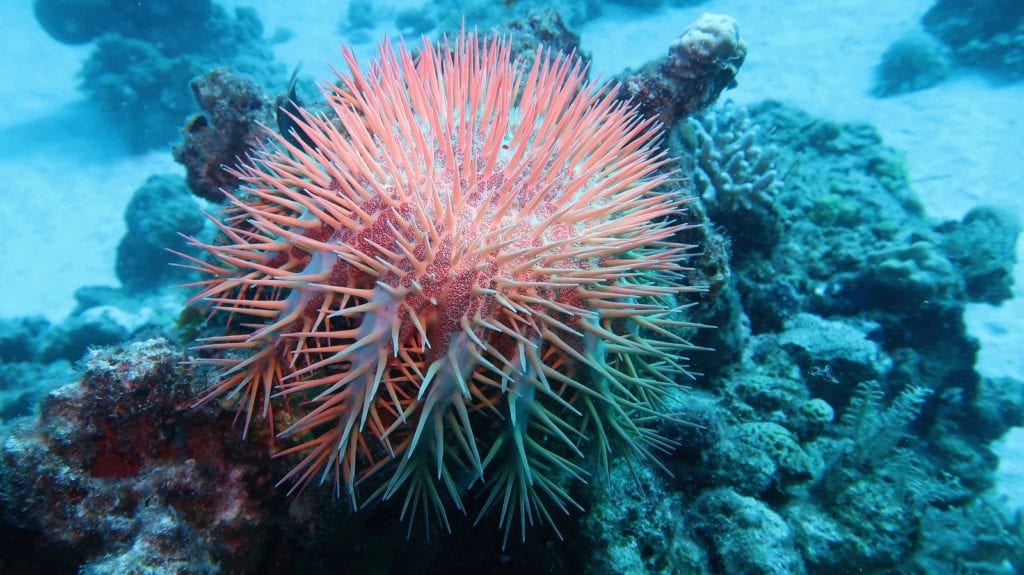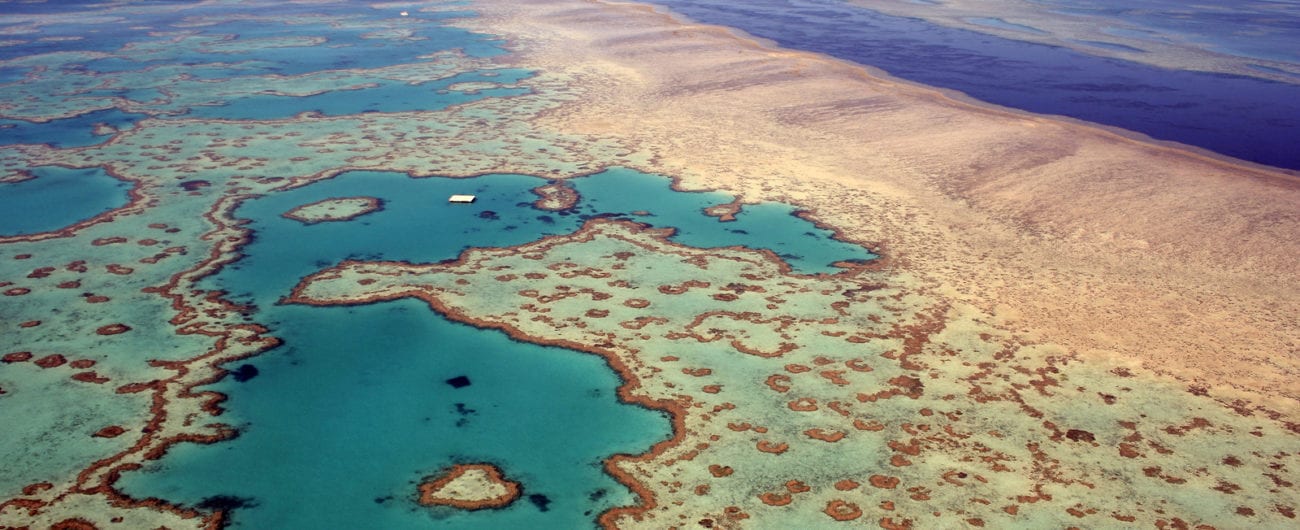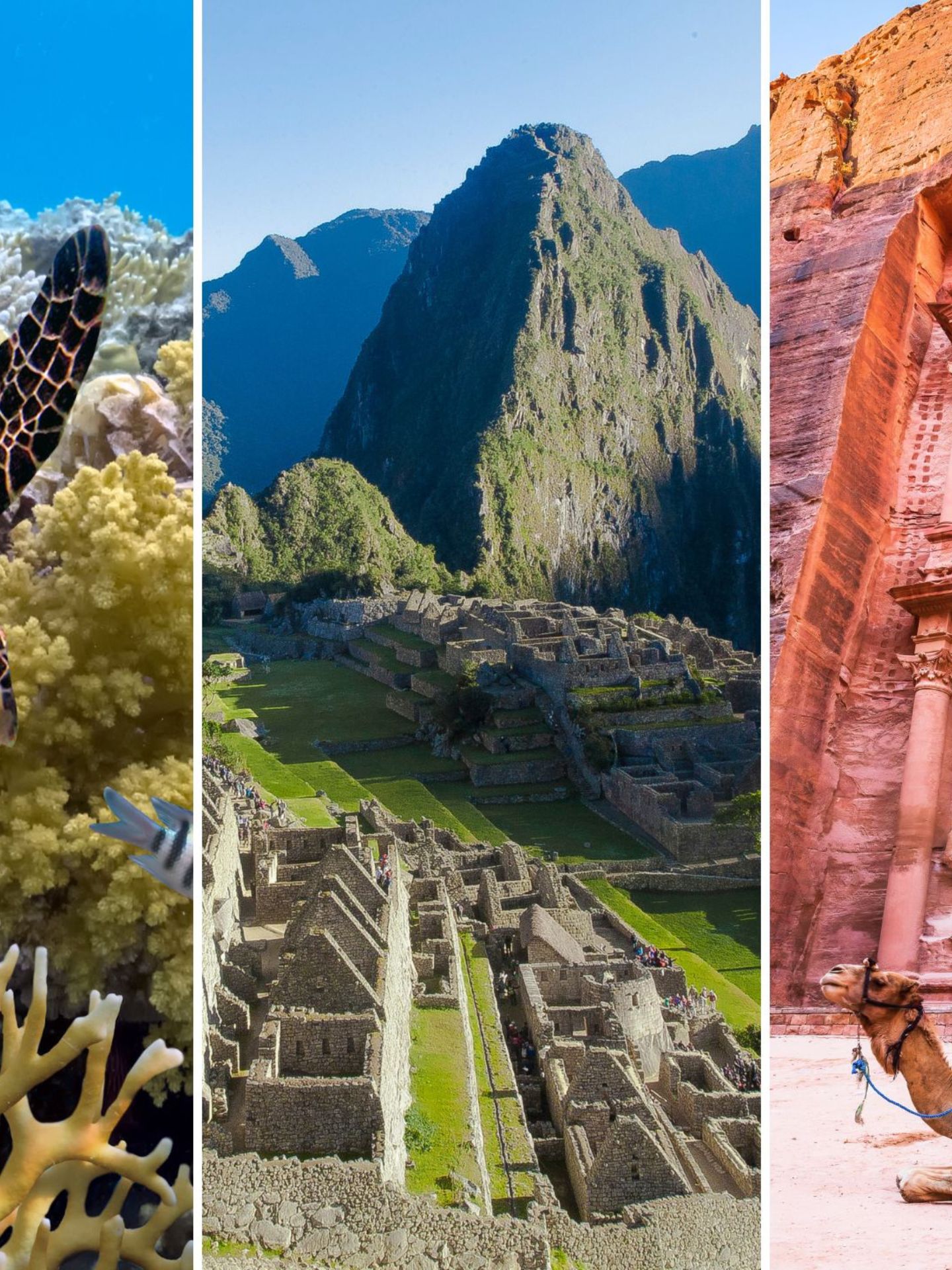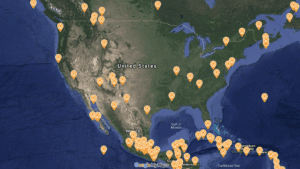The Great Barrier Reef has frequently been described as one of the wonders of the natural world. Richly bio diverse and teeming with life, this is a location that many adventurous travelers add to their bucket list. But this natural wonder is under terrible threat. While much has been done to limit human impact to the reef since 2014 – by curtailing tourism and implementing better port management – human factors such as coastal run-off, illegal fishing and other illegal activity, and even sunscreen worn by tourists all still have a serious detrimental effect. But far and away the biggest threat to the Great Barrier Reef is climate change.
The Threat of Climate Change to the Great Barrier Reef
Warming oceans and acidification are causing (and have already caused) significant degradation of the ecosystems and integrated habitats upon which so many diverse creatures depend. In the past decade, many of the worst-case scenario climate change predictions that were made over thirty years ago have come to pass. As things currently stand, the global mean temperature will risen by 1.5 degrees in short order. At current rates of warming this would take place some time between 2030 and 2052.
There is additionally an increasingly high likelihood that the planet will warm by more than 1.5 degrees – approaching a warming of 2 degrees by 2065. This will not only have serious implications for many ecosystems globally, it will result in a completely new climate regime under which changes would be irreversible. A significant reduction in greenhouse gas emissions – now – is the only way to limit the damage that mankind has already done.
As the planet warms, the oceans warm too. The sea surface in the Australia region has warmed by around 1 degree Celsius since 1910 – the Reef has warmed by around 0.8 degrees over the same period. Already, this has had catastrophic impact on the coral reefs and the species that depend on them. This was clearly seen in the mass coral bleaching events that occurred in 2016 and 2017. The worse the warming, the less capable and resilient the reef becomes, and a cascade effect endangers a huge range of organisms.
Climate change also brings an increasing number of extreme weather events, such as tropical cyclones to the region, which the damaged and depleted ecosystems are less well able to withstand, and from which they take longer to recover.

As climate change continues apace, changes to the ecosystems also create further imbalances that cause additional threats to the Great Barrier Reef. For example, rising sea temperatures are one factor, which is believed to increase the prevalence and frequency of ‘plagues’ of coral-eating crown-of-thorns starfish, an ecosystem imbalance that can also do significant damage to already weakened reefs.
The Threat of Coastal Development & Land based Run-Off
In addition to the threats posed by global climate change – more local factors also endanger this vitally important ecosystem. The Great Barrier Reef is still threatened by prior, current and future coastal development. Run off from urban areas, and especially polluted run-off from agriculture in the region, have a significant impact on the reefs. High pesticide concentrations have been found in the waters, especially at Mackay-Whitsunday sampling sites. Other pollutants and waste (especially plastic waste) also have a significant impact on the overall health of these waters and ecosystems.
The Direct Threat of People to the Great Barrier Reef

As mentioned above, much has been done over the past few years to limit the direct human impact on the Great Barrier Reef. Tourism, shipping, fishing and other activities on and around the reefs are highly and tightly regulated. However, people do still pose a direct threat as they come to experience this struggling natural wonder for themselves. Illegal activities such as fishing, poaching and vandalism do unfortunately pose a further threat. Well-meaning tourists can also inadvertently cause harm, through wearing non reef-safe sunscreen or otherwise polluting the waters.
The Long Term Outlook For the Great Barrier Reef
The reef ecosystems are rated as being in very poor condition. If measures are not taken to combat climate change on a global scale, then the management undertaken at a more local level, even where it is fully effective, cannot hope to save the Great Barrier Reef. The picture is most definitely bleak. It is important, however, to not lose optimism. There is hope. Action taken now will matter and there is still a lot that can be done to prevent a complete loss of this precious world heritage site. If we act, significantly, within the next decade, then the damaged ecosystem can be restored, and the Great Barrier Reef can bounce back.
You may wonder what you can do to help save the Great Barrier Reef, and the answer is a simple one: do what you can, while traveling and while at home, to reduce your carbon footprint and live as close to a zero waste, zero pollution lifestyle as possible. Choose sustainable, natural options. Refuse, reduce, reuse, repair and recycle. It is easy to feel overwhelmed and powerless, but there is plenty that we, as individuals can do for the good of planet and people.
If you visit the Great Barrier Reef, simple choices that you make can make a big difference. Choose sustainable accommodations, avoid flushing pollutants or sending plastic waste into the waters, wear reef-safe sunscreen, and take care not to do any harm to the ecosystems you have come here to see, or to the creatures that inhabit them. Small actions, collectively, can add up to major change. If we all do our bit, we might just be able to save the world’s wonders, like the Great Barrier Reef, for future generations and perhaps even leave this wonderful world a little better than we found it.







